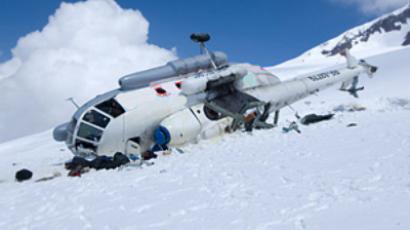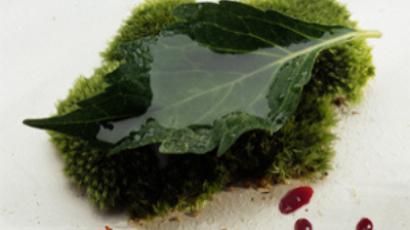Caviar poaching sees Caspian sturgeon on the verge of extinction
Caviar is one of the most exclusive foods on Earth, and a symbol of Russia. But the famous black caviar may soon disappear as rampant poaching proceeds faster than fish breeding.
Fishing wild sturgeon is highly illegal in Russia. But the ban has simply driven the prices of caviar up – making poaching ever more lucrative. A jar of caviar may be worth up to $15,000.
Poachers supply 49 out of every 50 jars of caviar consumed.
Colonel Vladimir Gatsenbiler from the Fishing Police shows the equipment seized in just the last few months.
“All around here there a hundreds of four-man crews in speedboats, equipped with three motors, satellite navigation and weapons. We try to shoot their motors to stop them, but they fire back, and we can't get them all,” Gatsenbiler says.
The Caspian Sea produces the vast majority of the world's black caviar. But the population of sturgeons in the Caspian has dropped by 40 times in just two decades.
Dr. Mikhail Egorov from Astrakhan State University calls for saving genetic samples before it's too late
“Without scientists and fish breeders the sturgeon would have become extinct already and would be seen only in aquariums. This is a catastrophe,” Egorov says.
The government subsidizes breeding farms to try and avoid total extinction. Successful breeding is difficult – it takes sturgeon until they are nearly ten years old to begin reproducing.
At least in farms their offspring are not destined for the dinner table. A farm releases a million sturgeons every year.
But as soon as they are set free, most of them are illegally fished again. Meaning the population is not likely to recover for decades.
Despite installing millions of dollars of new equipment, Caspian Research Institute Deputy Director Nina Bychkova says only better regulations can change the situation.
“The problem isn't the people here on the ground. The problem is corruption at a higher level. A whole system has been constructed to make sure that those who break the law do not pay,” Bychkova says.
Meanwhile, Colonel Gatsenbiler goes out on another raid. He knows a generous catch of poachers awaits him. And also that even if he arrests them today, others will replace them tomorrow.














